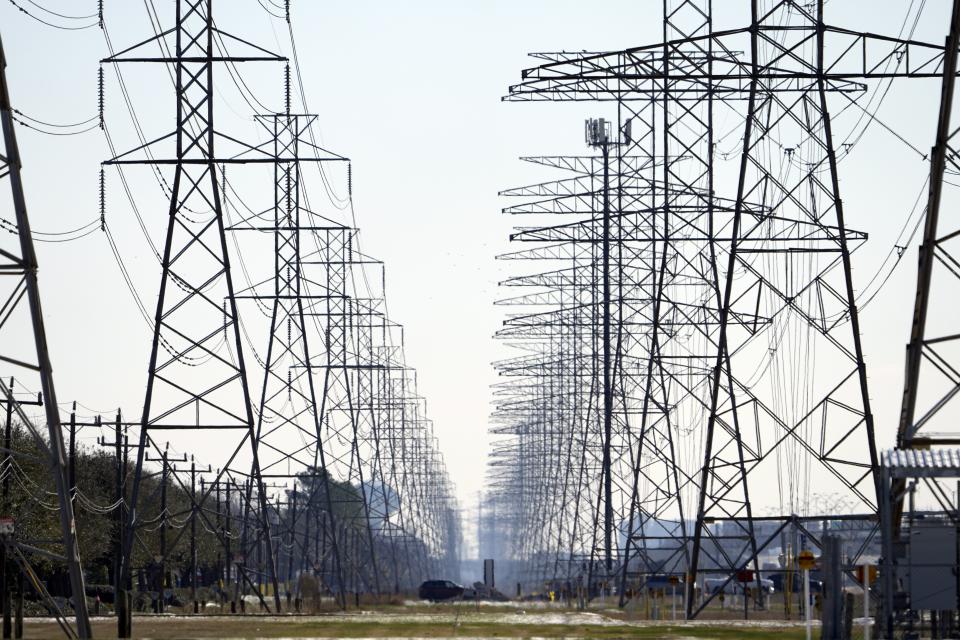Texas regulators punt decision on ERCOT market redesign to next week

State utility regulators Thursday delayed a much-anticipated vote on a proposed overhaul of the Texas electricity market, amid disagreements among state leaders on the merits of the leading plan.
Peter Lake, chair of the Public Utility Commission of Texas, said he's now aiming for the five-member commission to vote on the issue Jan. 19. In a nod to the controversy surrounding it, however, he reiterated previous comments that the outcome will merely be a recommendation.
"We will defer to the Legislature to provide us feedback and pick a different direction" if it so chooses, Lake said.
The Legislature, which convened this week and will be in session through May, can "tell us we are off course, give us another path, and we, of course, will be happy to support and implement that," he said.
More:Overhaul of ERCOT power market in limbo amid questions from lawmakers
The utility commission has spent about 18 months trying to devise a plan to revamp the Texas electricity market long-term by encouraging private investment in so-called dispatchable power generation, meaning plants that can turn on and off quickly in times of need.
The potential redesign of the market, which is managed by the Electric Reliability Council of Texas, is part of a broad effort to make the power grid more reliable in the aftermath of its near collapse during severe winter weather in February 2021. Extensive blackouts during that disaster contributed to hundreds of deaths and billions of dollars in property damage statewide.
Dispatchable generation in Texas overwhelmingly refers to plants fueled by natural gas or other fossil fuels, although wind farms and solar arrays could be considered dispatchable if paired with batteries for energy storage.
The proposal to encourage construction of new dispatchable plants that appears to have the greatest support among members of the utility commission — and that garnered an endorsement from Gov. Greg Abbott this week — is called the "performance credit mechanism," or PCM.
Boiled down, it would obligate electricity companies that provide power to homes and businesses to buy "performance credits" from generators that earn them by being available during times of greatest strain on the power grid. The credits would be awarded to generators after the close of compliance periods, based on evaluations of their availability.
Supporters say the plan would create a financial incentive for private investment in dispatchable power plants while preserving free-market principles and the "energy-only" status of the state's grid, because the credits would only be awarded for performance. In energy-only markets, generators are paid solely for electricity that's actually delivered, unlike capacity markets in which they're paid for the ability to produce power if needed.
The performance credit mechanism "best meets (the needs of the state's power grid) because it is based on a reliability standard, incentivizes new dispatchable generation, and maintains Texas' energy-only market," Abbott said in a letter Tuesday to the utility commission.
More:Texas power grid holds up despite higher than anticipated demand during weekend deep freeze
Idea remains untested
Still, the idea of performance credits is untested, with a consulting firm that analyzed it for the utility commission noting that such a mechanism "has not been implemented in any market in the world to date," meaning there could be complications in getting the system up and running.
Skeptics — including members of the state Senate's committee on business and commerce — also have said the plan will increase costs for consumers without guaranteeing more investment in dispatchable generation in the near-term.
According to a report for the utility commission released in November, the performance credit mechanism would result in an extra $460 million in annual system expenses by 2026, an increase of about 2% over projected system costs if it isn't implemented. That's on top of billions of dollars in additional costs already being passed on to ratepayers to operate the grid more conservatively and with a greater reserve cushion in the aftermath of the February 2021 disaster.
More:Is ERCOT shielded from lawsuits? Legal debate reaches Texas Supreme Court
Act quickly, or more time to consider?
State Sen. Charles Schwertner, R-Georgetown, who chaired the Senate's business and commerce committee during the previous legislative session, sent a letter to the utility commission Wednesday urging it to "delay actions towards implementing a redesign of the ERCOT market until after further deliberation by and consultation with the Texas Legislature."
The letter was a follow-up to a similar one to the commission last month that was signed by all nine members of Schwertner's committee.
At the time, they called the plan for performance credits "an administratively complex and novel concept," questioning its cost-effectiveness and saying it could create uncertainty for private companies and thus delay needed investment in the grid while it's being put in place.
In his endorsement of the plan this week, however, Abbott said "time is of the essence" and urged the utility commission to move forward.
"Texas is adding new residents and businesses every year, and the demands on the power grid will continue to grow," Abbott said in his letter. "I have full confidence that you will be able to meet this new demand by adopting and implementing a new market design that prioritizes reliability and meets the directives passed during the last legislative session."
This article originally appeared on Austin American-Statesman: Texas regulators punt decision on ERCOT market redesign to next week
